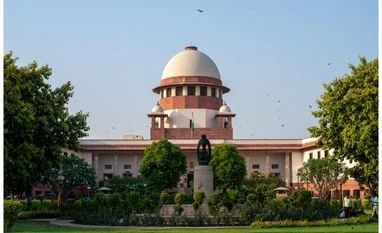The Supreme Court on Monday issued a notice to the union government in a case relating to the constitutional validity of anti-profiteering provisions under the goods and services tax (GST).
A three-judge bench comprising Chief Justice D Y Chandrachud, Justice J B Pardiwala and Justice Manoj Misra was hearing a special leave petition against the order of the Delhi High Court upholding the constitutional validity of the provisions.
The petitioner, detergent manufacturer Excel Rasayan Private Ltd, submitted that the High Court erred in failing to appreciate that the impugned provisions are ultra vires the constitution.
It is the first petition against the High Court order in the Supreme Court and many other companies are likely to follow suit, sources said.
Abhishek Rastogi, counsel for the petitioner, argued that the time limit with respect to anti-profiteering provisions cannot be endless and will pose significant difficulties for businesses.
The National Anti-Profiteering Authority (NAA) was set up under these provisions in November 2017 to ensure that companies pass on the benefits of input tax credit (ITC) and GST reduction to consumers by way of reduction in prices.
Also Read
It has been the experience of many countries that when they introduced GST there was a marked increase in inflation and the prices of commodities. NAA was constituted to check this for two years initially but its tenure was later extended a couple of times. The Competition Commission of India has been looking into complaints of profiteering against companies since December 2022.
Rastogi, founder of law firm Rastogi Chambers, argued that in the absence of methodology, the anti-profiteering provisions are arbitrary and vague. The Delhi High Court had earlier ruled that no fixed or mathematical formula can be laid down for determining anti-profiteering.
More than 100 companies, including Hindustan Unilever, Patanjali, Jubilant Foodworks, and Phillips, had filed petitions against the anti-profiteering provisions in the High Court.
The court held that the provisions pertain to a commensurate reduction of prices when GST rates are reduced or due to input tax credit and hence these provisions are in the public interest. They are in line with legislative powers given under the constitution, it ruled.
)